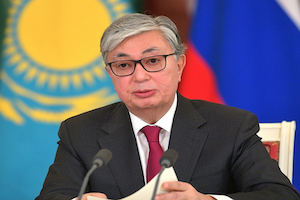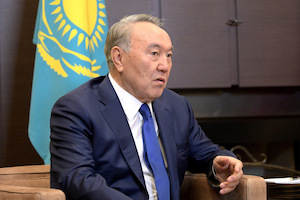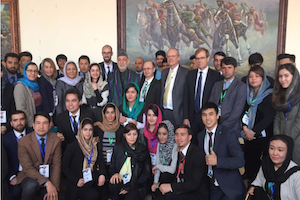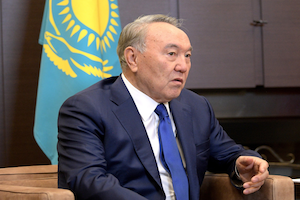Kazakhstan Elects New President
By Natalia Konarzewska
June 18, 2019, the CACI Analyst
On June 9, 2019, Kazakhstan held snap presidential elections following the resignation of long-term President Nursultan Nazarbayev. Nazarbayev’s close associate and former speaker of the Senate Kassym-Jomart Tokayev won the ballot receiving 70.76 percent of the votes. The election was accompanied by large protests in the country’s capital Nur-Sultan and in Almaty, followed by detentions of hundreds of protesters. It is unlikely that the change of president will bring radical change in Kazakhstan. Tokayev has already declared his commitment to preserving Nazarbayev’s legacy. Multiple developments indicate that preparations for the power shift in Kazakhstan have been ongoing for years, suggesting that the presidential succession was carefully planned and micromanaged from behind the scenes to ensure a smooth transition of power.

Why Kazakhstan's Presidential Elections Matter
By Rafis Abazov
May 23, 2019, the CACI Analyst
The resignation of Kazakhstan’s President Nursultan Nazarbayev in spring 2019, after 30 years of uninterrupted stewardship, had an unexpected timing. However, even more unexpected was the Parliament of Kazakhstan’s hastily announced early presidential elections scheduled for June 9, 2019. Even some major political insiders were caught unprepared. Indeed, leading local analyst Sergei Domnin of Expert Magazine wrote that the entire political establishment woke up to find Kazakhstan at a political “crossroad.” Some believe that the elections are just a face change and that the ruling elite will continue to pursue the same policies. Others claim that the elections could lead to the emergence of an “entirely new political model.”

"Modeling" Peace on the Great Silk Road
By Rafis Abazov
April 5, 2019, the CACI Analyst
Recent initiatives on stabilizing Afghanistan and security in the region during the high-level International Conference on Afghanistan in Geneva, and discussions of reconciliation with the Taliban in Doha and Moscow, have offered a number of conventional measures helping to resolve some of the area’s problems, but often only in the short run. However, below the radar of the heavyweight political players, groups of dedicated youth quietly work on the long-term solution through replicating the international efforts inside and outside of Afghanistan in their Model UN. Every year tens of thousands of students from across Greater Central Asia not only discuss the most pressing regional issues, but also educate and train the next generation of young people on diplomatic, negotiation and conflict prevention issues. The question is, will it work?

Xinjiang: Internment Camps with "Temporary" Characteristics?
By Ruth Ingram
March 25, 2019, the CACI Analyst
Official reassurances that Xinjiang's internment camps are only "temporary" fly in the face of mounting evidence to the contrary. Faced with incontrovertible data that now up to 1.5 million Uyghurs and Kazakhs are extra-judicially interned, Beijing is refusing to bow to international criticism and continues to justify its counter-terrorism strategy. Calling on the world to support its methods, Beijing is mounting an all-out public relations drive to persuade critical voices that in fact the camps are benign and successful in achieving their objectives. But the "experiment" already two years in operation shows no sign of abating. World leaders are calling it a cultural genocide and stepping up their demands to inspect the facilities.

Kazakhstan's President Resigns at a Moment of Political Tension and Uncertainty
By Natalia Konarzewska
March 22, 2019, the CACI Analyst
In February 2019, Kazakhstan saw a wave of protests triggered by various social and economic grievances. Rallies burst through the country in multiple locations, indicating that popular distress is strong and unlikely to fade soon. In an attempt to placate social discontent, President Nursultan Nazarbayev fired the government, citing its inability to improve living standards and announced his own plan to provide social relief for the families. Kazakhstan’s hydrocarbon-dependent economy is struggling to recover after the 2014 plunge in oil prices and the spillover effects of Western sanctions against its largest trade partner Russia. On March 19, president Nazarbayev announced his immediate resignation after ruling Kazakhstan for thirty years.



